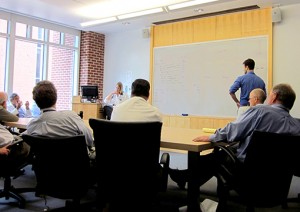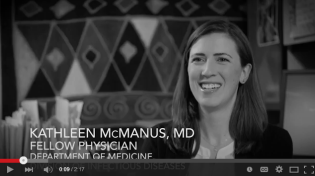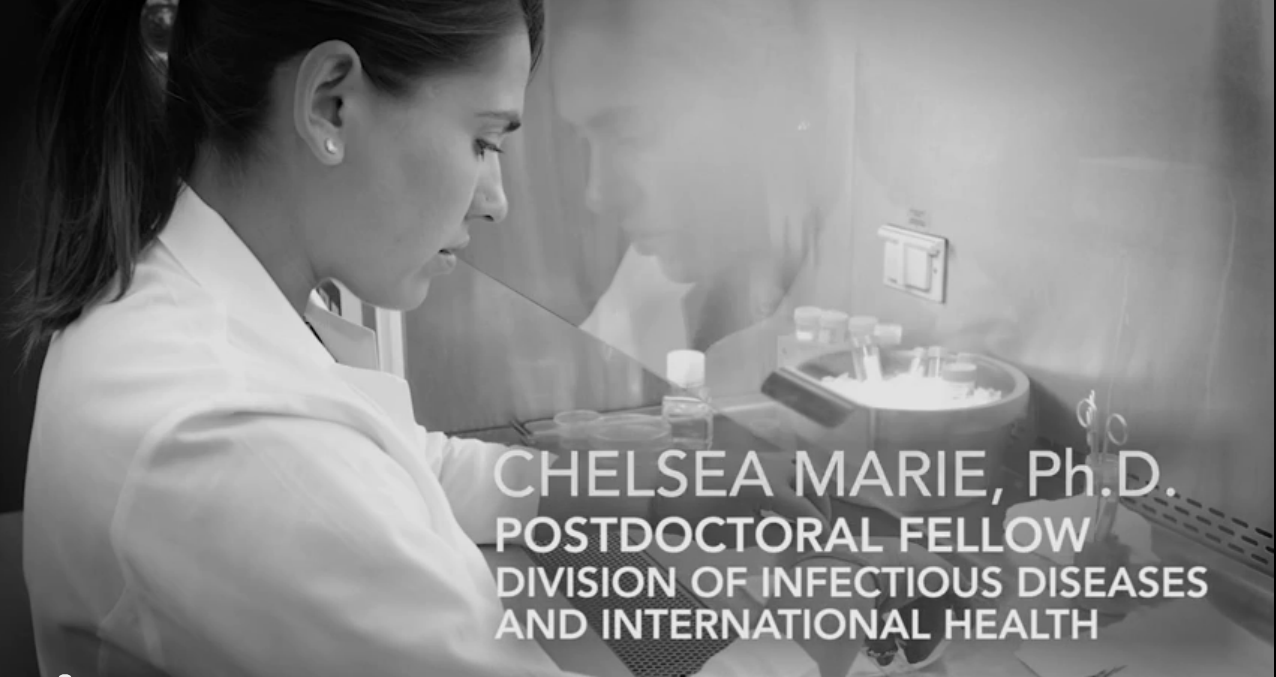Education
Division of Infectious Diseases & International Health
EDUCATION
The division’s long-time commitment to the education of world-class physicians and scientists in infectious diseases is reflected in the numerous teaching honors garnered by ID faculty over the years. In 2015, Brian Wispelwey, MD, won the School of Medicine’s Robley Dunglison Award (for a record fifth time); and Gerald Donowitz, MD, received an All-University Teaching Award (Rebecca Dillingham, MD, MPH, was a winner in 2014).
Division faculty also provide key leadership for the Department of Medicine’s medical educational programs: Dr. Donowitz serves as vice chair and Dr. Wispelwey as associate chair for the graduate and undergraduate programs, respectively. Barbara Mann, PhD, coordinates efforts to match graduate students to infectious diseases and biodefense labs.
The infectious diseases fellowship program is highly competitive, recruiting from a national pool and placing into academic positions 90 percent of all trainees, including the chiefs of infectious diseases at Stanford and Case Western Reserve and the clinical chair at Yale University.
Graduate Infectious Diseases Research Training Program
The division’s Graduate Infectious Diseases Research Training program is now in its fourth decade, with interdisciplinary PhD, postdoctoral and medical fellowship programs that encompass biodefense and global health. They include:
- ID and biodefense PhD program (six predoctoral fellows)
- Clinical fellowship program (10 MD fellows)
- ID and biodefense research fellowship program (2 postdoctoral fellows)
The centerpiece of the program, supported by two long-standing National Institutes of Health T32 training grants and foundation funding, is the side-by-side education of PhD students, scientific and medical postdoctoral fellows, who share classes and work together on basic and clinical research projects. The 32 faculty who teach and mentor in the program are drawn from seven different departments, with an array of expertise in fields such as microbiology, pathology, immunology and epidemiology. The average preceptor in the program has trained more than 10 pre- or postdoctoral students.
The clinical fellowship program consists of two broad areas: clinical training in the care of ambulatory and hospitalized patients with infectious diseases, and research training focused on the development of the skills necessary to become a successful independent investigator. One year — typically the first — is devoted entirely to research, with no clinical responsibilities. The other two years are divided equally between research and clinical care. The research year allows for the rapid development of research skills, which in turn results in more productive research during the subsequent two years of training, and a high degree of success as a faculty member after fellowship.
During the second and third years, fellows have rotations in both inpatient and outpatient settings. Two-thirds of the time is spent caring for patients on the general infectious disease consult service. The remainder is spent with patients who have compromised immunity associated with organ transplant, medication or HIV/AIDS. Fellows also spend one-half day a week in the Ryan White HIV Clinic participating in the longitudinal care of persons with HIV/AIDS. The development of clinical skills and competency is evaluated every six months by the Clinical Competency Committee using the Accreditation Council for Graduate Medical Education (ACGME) evaluation milestones introduced in July 2015. At the end of fellowship, the committee certifies the fellows’ readiness for the independent practice of infectious diseases.
The program is typically accredited for three fellows per year (total nine) but in FY 2014–2015, a temporary increase of one was approved by the Accreditation Council for Graduate Medical Education, bringing the total number of fellows to 10 for this single year.
2014-2015 Infectious Diseases clinical fellows:
Third year
- Jessica Lewis, MD
- Shannon Moonah, MD, ScM
- James Platts-Mills, MD
Second year
- Ashley Chaplin, MD
- Patrick Jackson, MD
- Kristen Schutte, MD
First year
- Anita Cheruvanky, MD
- Vincent Covelli, MD
- Kathleen McManus, MD
- Jae Shin, MD
Tropical Medicine and Traveler’s Health Certificate
The Division of Infectious Diseases and International Health is one of a few programs in the United States that offers a certificate in Tropical Medicine and Traveler’s Health. Administered in association with the American Society of Tropical Medicine and Hygiene, the certification course includes seminars, conferences, outpatient and inpatient experiences, and fieldwork abroad with a particular emphasis on tropical and travel medicine. The Division of Infectious Diseases also offers a certificate course in Tropical Medicine and Traveler’s Health, which is run in association with the American Society of Tropical Medicine and Hygiene.



